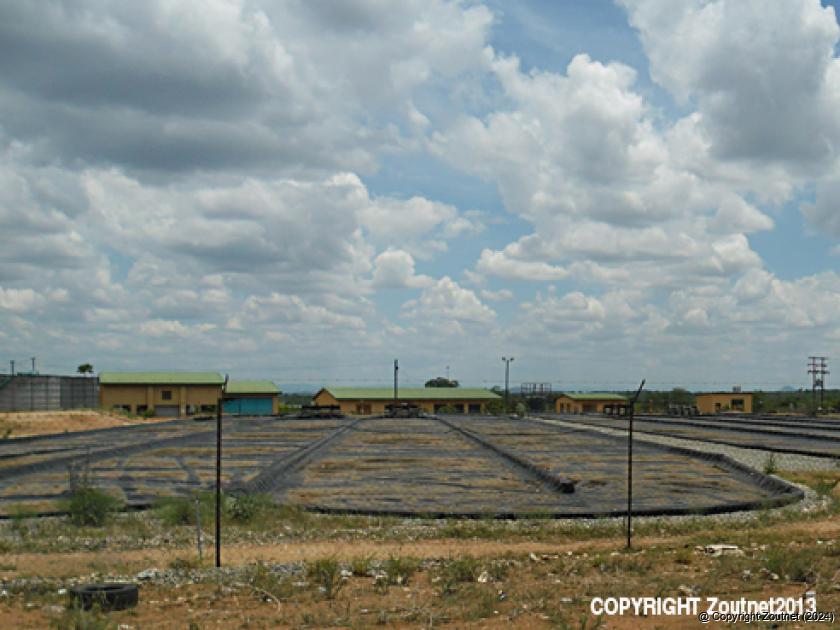

ADVERTISEMENT:

Flagship development now a white elephant
Musina’s dysfunctional multi-million-rand monument to incompetence and greed ... This is an expert’s description of the Musina Spirulina Plant - once hailed as an impressive first for Africa.
The installation was developed and erected with a government sponsorship of R6 million, for what was hailed as the world’s best commercially produced spirulina. The product, described as superior and unique in various respects, experienced several high-profile professional marketing launches before disappearing from the market. It left a sprawling, elaborate plant with expensive, sophisticated equipment idle and in complete dereliction. The equipment once included a specially imported turbo-rotor drier of more than R1 million which also ground the material into a fine powder, for increased and faster absorption of this health-food supplement made from algae.
Enquiries about the present status of the project were initially met with total silence by the Musina Municipality.
In the year 2000, the Musina Municipality was among the beneficiaries of government funding for the creation of local economic projects. The municipality received a donation of R6 million and decided on the production of spirulina. The spirulina project was wholly owned by the municipality, through an entity called Zelpy 1903 (Pty) Ltd., controlled by a board of directors, with the then municipal manager, Mr Abram Luruli, as CEO. Luruli said at the time that the idea was to generate income and channel the profits back to the municipality to facilitate other economic development projects to benefit the community at large.
During one of several launches of the product, which started with a launch in Sandton in 2007, the then premier of Limpopo described the project as a public-private partnership which could become a good role model for the entire country to emulate.
In the absence of any response from the municipality to questions about the present status of the project, the international expert who assisted the municipality in the design and development of the production plant during a period of several years, Prof Johan Grobbelaar of the University of the Free State, was approached. He confirmed that he was informed in 2007 by the municipal manager that his expertise and services were no longer required. This happened after Grobbelaar had also completed the training of an assistant at the plant. The trained assistant afterwards left for alternative employment elsewhere.
“I later received reports of increasing neglect and deterioration at the plant. It seems as if the end result is that a multi-million-rand investment which was unique in Africa and had all the potential of an inspiring success story for South Africa, had become yet another statistic of bad management and avarice,” Grobbelaar said.
Last week, in a belated response to repeated enquiries, municipal spokesperson Mr Wilson Dzebu confirmed that the Musina Municipality had decided to discontinue the project because it was not sustainable. "It did not bring in anything for the municipality, so it was decided not to continue with the project. At present, the future usage of the site and the equipment is under deliberation," Dzebu said.
News - Date: 18 April 2013

Recent Articles
-

From sportscaster to advocate
21 April 2024 By Silas Nduvheni -

New lab welcomed by Bungeni learners
20 April 2024 By Thembi Siaga -

Rialivhuwa and Sally are king and queen
20 April 2024 By Kaizer Nengovhela -

'Headman demolished my house'
20 April 2024 By Kaizer Nengovhela
Search for a story:

ADVERTISEMENT


Frans van der Merwe
Frans van der Merwe is a freelance journalist with more than 40 years experience in the newspaper industry. Apart from newspaper reporting, he was also involved with radio news, news reading, training and marketing. He has been living and working in Louis Trichardt since 1991.

ADVERTISEMENT:

